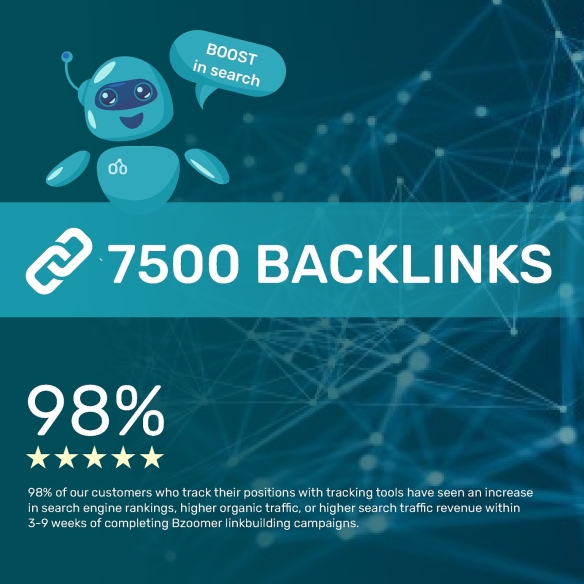In the evolving landscape of global finance and regulatory compliance, the Beneficial Ownership Information Report (BOIR) has emerged as a pivotal tool in enhancing transparency and combating financial malfeasance. This article delves deep into the intricacies of BOIR, its significance, the role of FinCEN, and how organizations can effectively implement BOIR to meet regulatory standards.
The BOIR is a regulatory framework designed to collect and maintain accurate information about the individuals who ultimately own or control legal entities, such as corporations and LLCs. By identifying the real persons behind complex corporate structures, BOIR aims to increase transparency in financial transactions, thereby reducing the risk of money laundering, tax evasion, and other illicit activities.
The Importance of Beneficial Ownership Information
Enhancing Transparency
BOIR provides a clear picture of who truly controls and benefits from a business entity. This transparency is crucial for regulators, financial institutions, and other stakeholders to assess risks and ensure compliance with anti-money laundering (AML) and combating the financing of terrorism (CFT) regulations.
Combating Financial Crimes
Accurate beneficial ownership information is a frontline defense against financial crimes. By identifying the true owners, authorities can trace illicit funds, prosecute offenders, and dismantle complex schemes designed to obscure financial activities.
Building Trust in the Financial System
Transparency through BOIR fosters trust among investors, customers, and the general public. It assures them that businesses operate with integrity and comply with legal standards, thereby promoting a stable and reliable financial ecosystem.
FinCEN and BOIR: A Symbiotic Relationship
The Financial Crimes Enforcement Network (FinCEN) plays a critical role in the administration and enforcement of BOIR requirements. As a bureau of the U.S. Department of the Treasury, FinCEN is tasked with safeguarding the financial system from illicit use and combating money laundering and terrorist financing.
FinCEN's Mandate
FinCEN collects, analyzes, and disseminates financial intelligence to support law enforcement agencies in their efforts to combat financial crimes. The introduction of BOIR aligns with FinCEN's mission by providing a structured approach to identifying beneficial ownership.
Regulatory Framework
FinCEN has established guidelines and regulations that govern the submission and maintenance of BOIR. These regulations outline the necessary information, submission timelines, and compliance procedures that organizations must follow to adhere to BOIR standards.
Components of a BOIR
A comprehensive BOIR encompasses several key components to ensure completeness and accuracy:
Identifying Information
- Full Legal Name: The complete name of the beneficial owner.
- Date of Birth: To verify identity and prevent age-related discrepancies.
- Address: Current residential or business address.
- Nationality: Country of citizenship to assess cross-border implications.
Ownership and Control Details
- Percentage of Ownership: Exact shareholding or ownership percentage in the entity.
- Control Mechanisms: Methods through which the owner exerts control, such as voting rights or board positions.
- Source of Funds: Origin of the capital invested in the entity.
Documentation
- Proof of Identity: Government-issued identification documents like passports or driver's licenses.
- Legal Documents: Articles of incorporation, bylaws, or partnership agreements that outline ownership structures.
The BOI Reporting Process
Implementing BOIR involves a systematic reporting process to ensure compliance and accuracy.
Data Collection
Organizations must gather comprehensive data on all beneficial owners, including their personal and ownership details. This may involve internal audits, consultations with legal teams, and data verification processes.
Submission to FinCEN
Once collected, the BOI must be submitted to FinCEN through designated channels. This submission typically requires digital filing using FinCEN’s online portals, ensuring secure and efficient data transmission.
Regular Updates
Beneficial ownership information can change over time due to shifts in ownership, control, or personal circumstances of the owners. Organizations are mandated to update their BOIR regularly, typically on an annual basis or whenever significant changes occur.
Verification and Compliance Checks
FinCEN conducts verification checks to ensure the accuracy and legitimacy of the submitted information. Organizations may be required to provide additional documentation or clarification if discrepancies are found.
Compliance and Legal Implications
Non-compliance with BOIR requirements can result in severe legal and financial repercussions.
Penalties for Non-Compliance
Organizations that fail to comply with BOIR regulations may face hefty fines, sanctions, or even criminal charges, depending on the severity of the violation.
Legal Obligations
Businesses are legally obligated to maintain accurate and up-to-date beneficial ownership information. This includes ensuring data privacy and protection in line with relevant laws, such as the General Data Protection Regulation (GDPR) for entities operating within the European Union.
Internal Policies
Developing robust internal policies and procedures is essential for maintaining BOIR compliance. This includes training employees, conducting regular audits, and establishing clear protocols for data management and reporting.
Benefits of Implementing BOIR
Risk Mitigation
BOIR helps organizations identify and mitigate risks associated with financial crimes, enhancing overall security and stability.
Enhanced Due Diligence
Having detailed beneficial ownership information allows for more thorough due diligence processes, particularly in client onboarding and transaction monitoring.
Improved Regulatory Relationships
Compliance with BOIR regulations fosters positive relationships with regulatory bodies, reducing the likelihood of investigations and facilitating smoother operations.
Competitive Advantage
Organizations that prioritize transparency and compliance can differentiate themselves in the market, attracting more investors and partners who value integrity.
Challenges in BOIR Implementation
Data Accuracy and Verification
Ensuring the accuracy of beneficial ownership information can be challenging, especially for large organizations with complex ownership structures.
Privacy Concerns
Balancing transparency with the privacy rights of individuals is a delicate task. Organizations must navigate data protection laws while fulfilling BOIR requirements.
Technological Barriers
Implementing the necessary technology for data collection, storage, and submission can be resource-intensive, particularly for smaller businesses.
Global Compliance
For multinational corporations, adhering to BOIR regulations across different jurisdictions with varying requirements adds another layer of complexity.
Future of BOIR in Global Finance
The landscape of financial regulation is continually evolving, and BOIR is poised to play an increasingly significant role.
Enhanced International Cooperation
Global initiatives are pushing for standardized BOIR practices, fostering international cooperation in combating financial crimes.
Technological Advancements
Emerging technologies such as blockchain and artificial intelligence can streamline BOIR processes, improving efficiency and accuracy.
Expanded Regulatory Scope
As financial systems grow more complex, BOIR regulations are expected to expand, covering a broader range of entities and ownership structures.
Greater Transparency Initiatives
The push for greater transparency in business operations will likely drive further enhancements in BOIR frameworks, ensuring they remain effective against sophisticated financial crimes.
The Beneficial Ownership Information Report (BOIR) is a cornerstone in the fight against financial misconduct, promoting transparency and accountability within the global financial system. By understanding its components, adhering to FinCEN guidelines, and overcoming implementation challenges, organizations can harness the full potential of BOIR to safeguard their operations and contribute to a more transparent and secure financial environment. As regulations continue to evolve, staying informed and proactive in BOIR compliance will be essential for businesses aiming to thrive in an increasingly regulated world.



